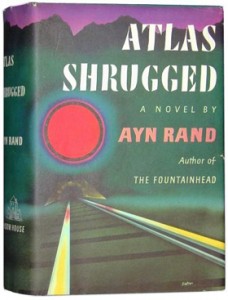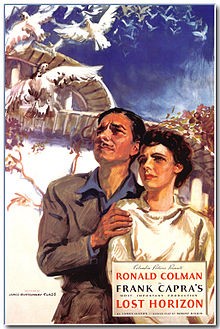 Note: If you haven’t seen the film, take my word for nothing in here. PLEASE see it and draw your own conclusions. It’s still running in 65 theaters around the country.
Note: If you haven’t seen the film, take my word for nothing in here. PLEASE see it and draw your own conclusions. It’s still running in 65 theaters around the country.
Continuing my review of Atlas Shrugged: Who Is John Galt, I wish to pause for a disclaimer and a shout-out. First, the disclaimer: I am speaking frankly about this film because I believe in the project. I respect the passion of the creative team behind it. I understand the obstacles they had to overcome to bring an overwhelmingly popular book to film under the eye of a film industry that largely holds its audience in contempt, and believes that this book is only popular because most of the reading public is too stupid to know what’s good for them. I admire their effort, and I hope it will ultimately pay off.



